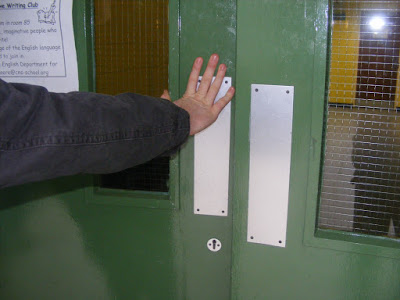Respite for Market Nerves Lifts Peso, Rand, and US Dollar
The latest US political news before roiledthin pre-weekend markets, but cooler heads and more of them are prevailing today. Trump's fortune in the polls had bottomed prior to the re-opening of the investigation into Clinton's emails and the national polls have narrowed.
However, Clinton's lead in the electoral college projections remains substantial. Nate Silver's fivethirtyeight.com blog puts the odds of a Clinton just below 79%, down from 86.3% a week ago and 88% two weeks ago. Predictwise, another respected site, gives Clinton 88% chance of winning, down from90% last week and two weeks ago.
The US dollar is better bid against most of the major currencies. The notable exception is the Canadian dollar, which underperformed before the weekend, and the Australian dollar. The RBA meets tomorrow, and there is little chance of a rate cut. The Aussie is in the middle of its two-cent range seen $0.7500-$0.7700.
The euro was turned back from the $1.10 area. The $1.0940 is the initial retracement of the bounce that began before the latest US political developments, and then $1.1920. The 20-day moving average is near $1.1015. Theeuro has not closed above this moving average this month.
Germany reported poor retail sales. The Bloomberg survey median had a 0.2% increase after a 0.4% decline in August. Instead, September retail sales fell 1.4% (Aug revised to -0.3%). It is the largest slide in two years. German retail sales are up 0.4% from a year ago.
Separately, eurozone October CPI and Q3 GDP were in line with expectations. Headline CPI rose 0.5% after a 0.4% pace in September. The core rate was unchanged at 0.8%, suggesting the improvement came from energy. The euro area is expanded by 0.3% in Q3 and a 1.6% year-over-year rate. Both were in line with preliminary estimates, which matched Q2’s performance.
Indications that further developments are needed if expectations of the outcome of the US presidential election will change is helping the Mexican peso recoup its pre-weekend slide. The pullback can extend toward MXN18.80 after peaking near MXN10.10 ahead of the weekend. News of OPEC's failure to agreed on specific cuts over the weekend was tipped last Friday. Oil prices are only slightly lower today.
Several UK papers fanned speculation over the weekend that Carney could resign as early as this week. Some reports even suggested his replacement could be a Tory MP who favored Brexit. We were skeptical. The Financial Times lead story today is more aligned with our thinking. It reads "Carney stands ready to serve a full8-year term at Bank of England." When initially joining the BOE, Carney accepted a half-term that would end in 2018. However, he had the option to extend it into a full-term, which extends to 2021. That is what at stake here.
The idea that Carney is considering resigning is likely far from the mark. It is true that he has been subject to fierce criticism for his warnings of the economic consequences of Brexit. Not only hasn't Brexit taken place but early and aggressive measures by the Bank of England may have helpedcushion the initial shock. In any event, if Carney is worried about threats to the central bank's independence his abdication would set a dangerous precedent of the encroachment.
The dollar reached JPY105.50 before the weekend and finished near JPY104.75. It fell a half yen in early-Asia and rebounded to JPY105 early in the European morning. The dollar's broader recovery and poor Japanese data took a toll. The BOJ two-day meeting has begun, but no fresh action is expected, even if it pushes out again when it will hit its inflation target.
Industrial output was expected to have risen 0.9% and instead it was flat in September. This means the year-over-year rate slides to 0.9% from 4.5% in August. Retail sales were also flat, though a small gain was expectedafter the large 1.1% decline in August. Despite the month-to-month movement, Japanese retail sales are low and stable. The 3- and 6-month averages stand at 0.1%.
One bright spot in Japan is housing/construction. Housing starts surged 10% year-over-year in September, almost double the expected gain, and four-fold faster than the 2.5% pace reported in August. Construction orders, more broadly, are up 16.3% in the year through September.
Japanese stocks were narrowly mixed, with the Topix eking out a small gain, while the Nikkei was a touch lower. News that Japan's largest shipping companies will merge was a key talking point.The MSCI Asia-Pacific Index snapped a 3-day losing streak by rising about 0.25% today.
News that prosecutors have dropped the fraud charges against South Africa's finance minister is fueling a sharp recovery of the rand. It is up 2% near midday in Europe. On October 12, the dollar reached a high near ZAR14.50. It reached ZAR13.585 today. Trendline support drawn off the August and September lows comes in near ZAR13.50.
The US reports personal income and consumption data, but this has already been incorporated into the Q3 GDP estimate released at the end of last week. The core PCE deflatormay attract some attention, but only if it is different from the 1..7% pace seen in August. The Chicago PMI and Dallas Fed manufacturing survey are also on tap. With the FOMC meeting this week and the jobs data, today’s reports underwhelm.
![]()
This post was originally published by Marc Chandler at his blog, marctomarket.com
Copyright © Marc Chandler























